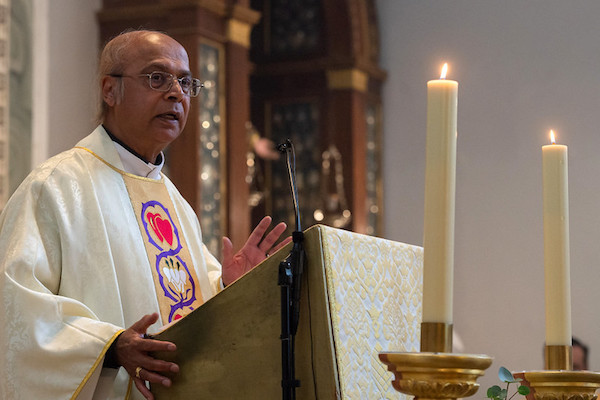The Church in Australia has agreed a series of landmark reforms on the role of women, a new translation of the Roman Missal and the wider use of the “third rite” of confession.
These were voted through on a final day of voting during the plenary council assembly in Sydney and come at the end of a four year discernment process which has included the participation of 222,000 Catholics from across the country.
Bishops and members of the council agreed that the Church in Australia would “implement” female deacons should the universal law of the Church allow it, and that women will be part of “decision making structures” of governance. Each diocese would commit to finding “new opportunities for women to participate in ministries.”
The motion on women deacons makes Australia the second local church, along with the Amazon, to have indicated openness to the possibility of a female diaconate.
A plenary council is the highest form of gathering for a local church and final decisions need to be signed off by Pope Francis. The council’s decisions, however, will lead to legislation and decrees that will be binding on the local church.
The agreement on the role of women marks a dramatic turnaround in the council process, after some members had threatened to abandon the assembly gathering earlier in the week when motions on women had failed to reach a two-thirds majority. Following this vote on 6 July, some members held a silent protest inside the hall by refusing to return to their seats.
After crisis talks were held by the bishops, the council drew up new motions on the topic of “witnessing to the equal dignity of women and men” which received a two-thirds majority on 8 July. For any motion to be successful at the plenary council, it must receive both a two-thirds majority among members, and two-thirds among the bishops.
During the last day of voting, the council also passed a motion calling for a new English translation of the Roman Missal in Australia to ensure it is “sensitive to the call for language that communicates clearly and includes all in the assembly.”
The current translation of the English Mass texts, which came into force in 2011, has long been criticised for a lack of inclusive language and clunkiness, and for being an imposition from Rome. Pope Francis, however, has reformed the process for liturgical translations giving greater freedom to local bishops and which opens the path for the Church in Australia to push forward with a revision.
Ironically, it had been the Australian Cardinal George Pell who led the Vatican committee, Vox Clara (Clear Voice), which policed the English missal translation process.
The decision by the Australian Church is likely to lead to calls in other English-speaking Catholic communities for a revision of the Missal translation, given the repeated expressions of dissatisfaction with the current version.
Another significant vote came in the request for a wider use of the “Third Form of the Rite of Penance”, known as “general absolution”. This is a way to offer reconciliation to groups rather than through individual confession to a priest.
In the years after the Second Vatican Council (1962-65) the “third rite” grew popular in Australia, particularly in rural dioceses where there are severe shortages of priests. There is also anecdotal evidence that the use of the “third rite” leads to a greater uptake of personal confession.
However, the use of the “third rite” was resisted by the Holy See which cracked down on the practice during the pontificate of John Paul II in the late 1990s, stressing the need for individual confession. The use of the “third rite” was also one of the factors behind the 2011 removal by the Holy See of Bishop William Morris, who led the rural Diocese of Toowomba, a case that garnered huge attention in Australia and internationally.
The Plenary Council has agreed to petition the Pope to “consider whether the Third Form of the Rite of Penance might have wider use on occasions when it is particularly appropriate, granted an understanding among the faithful of its distinctive nature and requirements”.
The council has agreed motions on a range of topics which offer a blueprint for the future direction of the Church in Australia. These include a “national framework for formation in Catholic Social Teaching” and a commitment for every parish and church institution to take action on the environment by drawing up Laudato’ si action plans, based on the Pope’s encyclical on care for the environment.
The council has also pledged to tackle a “culture of clericalism” by including lay people in major decisions and to ensure governance is carried out in a “synodal manner” through structures such as pastoral councils. The church is also committed to the “synodal leadership envisaged at Vatican II” and called for by Francis.
The plenary process is a response to the devastating revelations of clerical sexual abuse in the Church which have led to calls for deep reform and renewal. A liturgy of lament for abuse and the passing of motions on safeguarding were passed on the first day of the assembly.



 Loading ...
Loading ...